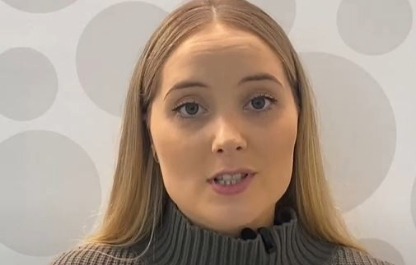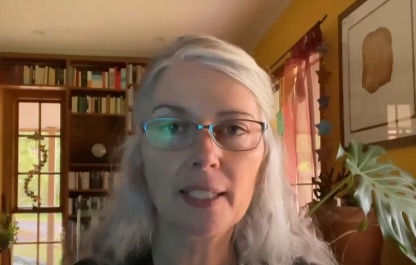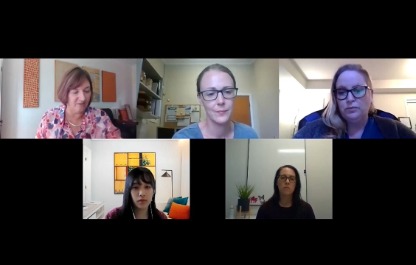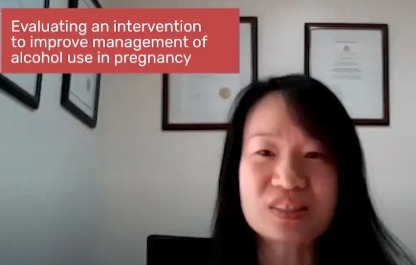
65 results

Research Spotlight: Reframe Training ft Dr Hayley Passmore
After the Banksia Hill Project uncovered high rates of FASD and severe neurodevelopmental impairments in young people in detention, researchers at the Telethon Kids Institute developed Reframe Training – a course to help professionals coming into contact with these young people understand their needs and respond appropriately. Reframe Training lead and facilitator Dr Hayley Passmore shares why this program is urgently needed and what it aims to achieve.

Research Spotlight: The AQUA Study ft. Evi Muggli
Based at the Murdoch Children’s Research Institute, Evi Muggli manages one of the world’s largest long-term studies on alcohol in pregnancy, Asking Questions about Alcohol (AQUA). The children involved in this study are in primary school – and they’ve been taking part since before they were born. We asked Evi to share what the study has found so far and what they hope to continue investigating.

FASD Hub Webinar: Research to drive practice and behaviour change
For our first virtual event for 2021, we invited five leading early-career researchers to share their work within the theme ‘Research to drive practice and behaviour change.’
View the full session including all their presentations and the audience Q&A.

Research Spotlight: Introducing the FASD Australian Registry ft. Dr Melissa Cheung
The FASD Australian Registry (FASDAR) aims to maintain a central database of cases in Australia, in order to help develop a greater understanding of FASD, inform new research, and support families. Here, FASDAR Manager Dr Melissa Cheung shares why having an Australian registry is so important.

Research Spotlight: FASD Justice Employment Resources ft. Dr Annabelle Nankoo
A WA team of researchers and clinicians is offering hope to people with Fetal Alcohol spectrum Disorder (FASD) and justice involvement by providing resources specifically designed to help gain and retain employment after release. Lead researcher Dr Annabelle Nankoo, clinical psychologist registrar and former research officer at UWA, explains the importance of employment support for this demographic, and the aims of this latest research.

Research Spotlight: What information sources do pregnant women use? ft. Dr Tracey Tsang
When it comes to sourcing information on the harms of alcohol use, pregnant women most commonly use written or electronic resources, antenatal health providers, and family or friends. Dr Tracey Tsang, lead researcher from The University of Sydney, explains what this means for preventing prenatal alcohol exposure and related harms, preventing Fetal Alcohol Spectrum Disorder (FASD), and improving outcomes for all pregnant women.
Acknowledgements
Our thanks go to the remarkable families who gave their time and invited us into their homes, school and life. Their stories are testament to their hardwork, dedication, love and resilience in bringing up these children and young people.
We also acknowledge the expertise and professionalism of the health professionals who gave us their time to film in their clinics and offices.
Stay connected
Join our mailing list to hear more from the FASD Hub, including our monthly newsletters, webinar invitations, and new publications.
Acknowledgement of Country
FASD Hub Australia acknowledges Aboriginal and Torres Strait Islander peoples as the Traditional Custodians of Country throughout Australia, and we recognise their connections to land, water and community. We pay our respect to their elders past and present, and extend that respect to all Aboriginal and Torres Strait Islander peoples.